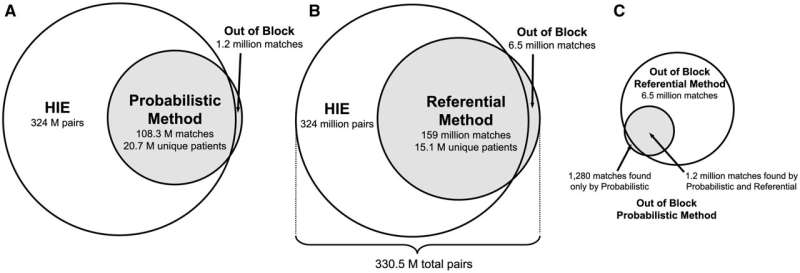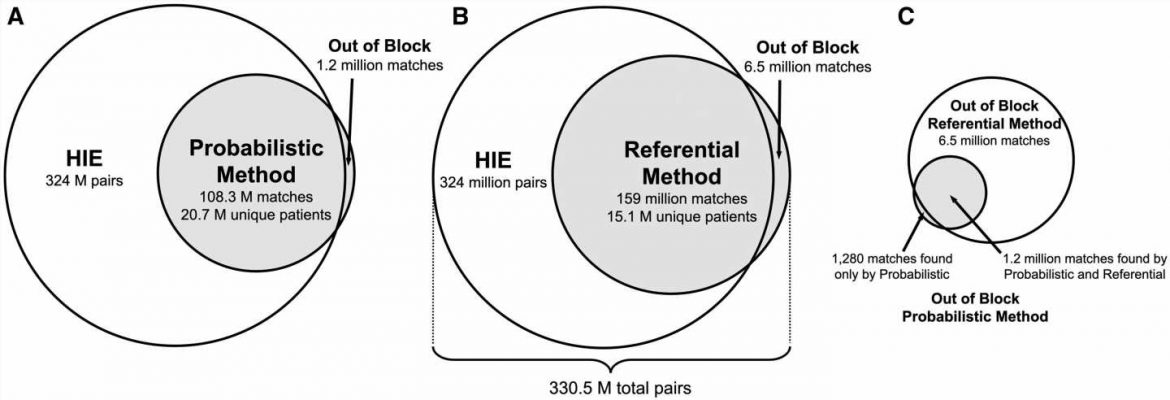Study explores medical record linkage with goal of improving match accuracy

Accurate linking of medical records from different sources, known as patient matching, plays a critical role in patient safety and quality of medical care, but has proven difficult to accomplish. A new study from the Regenstrief Institute is one of the first to evaluate commercially available matching methodologies in comparison to real-world gold standard data with the goal of identifying evidence-based opportunities for improving match accuracy for record linkage.
“Healthcare providers need securely shared access to all available data on an individual to make the best care decisions, yet patient data remains fragmented,” said Regenstrief Institute Vice President for Data and Analytics and Indiana University School of Medicine Professor Shaun Grannis, M.D., M.S., who led the study. “Name variations, typographic or recording errors, missing information, as well as name, address and phone number changes and other issues make record linkage daunting.”
To ensure effective data sharing, electronic health records (EHRs)—both within one office or hospital system and among different healthcare organizations—must accurately refer to a single, specific individual. Is the Robert Smith seen at one medical office the same person as the Robert Smith, Rob Smith or Bob Smith seeking care at a different facility? Are his health records comprehensively linked? To which Maria Garcia do various lab test results belong? Which Mike Miller was the one hospitalized for COVID-19 who requires long-term post-pandemic care?
Noting that there is no evidence-based “best” patient matching approach, the study authors compared the algorithms of probabilistic matching and the increasingly popular referential method of record linking to the gold standard of manually reviewed information from the Indiana Network for Patient Care (INPC), one of the nation’s largest health information exchanges with 47 million patient registrations. The researchers found that referential patient matching, which employs data from commercially available, non-healthcare sources, including credit header data and federal, state and local government person records, demonstrated greater sensitivity and accuracy than the more traditional probabilistic approach.
The authors noted, “As the United States continues to advance a national identity strategy for healthcare, a more consistent and broadly deployed approach to objectively evaluating matching algorithms is necessary to provide transparency and support healthcare organizations in adopting evidence-based best practice guidelines for patient matching algorithms. Consequently, health IT policymakers, including the ONC [Office of the National Coordinator], should explore strategies for expanding the evidence base for real-world matching system performance and encourage development of more consistent and transparent approaches to assessing and disseminating matching system performance.”
Source: Read Full Article
